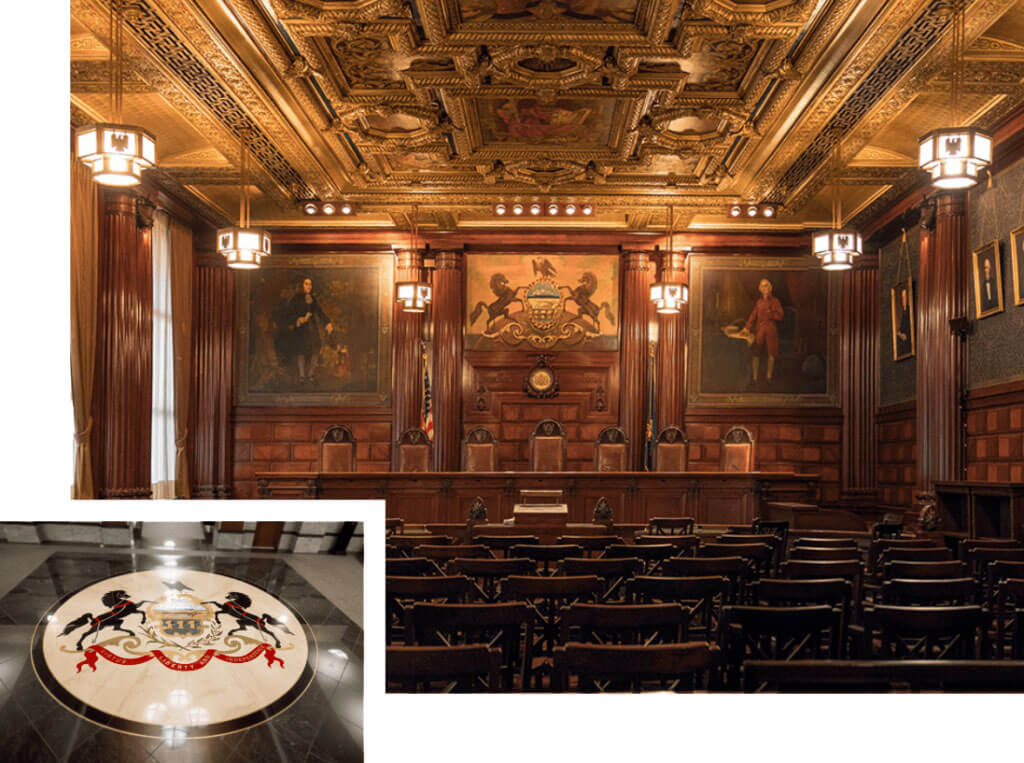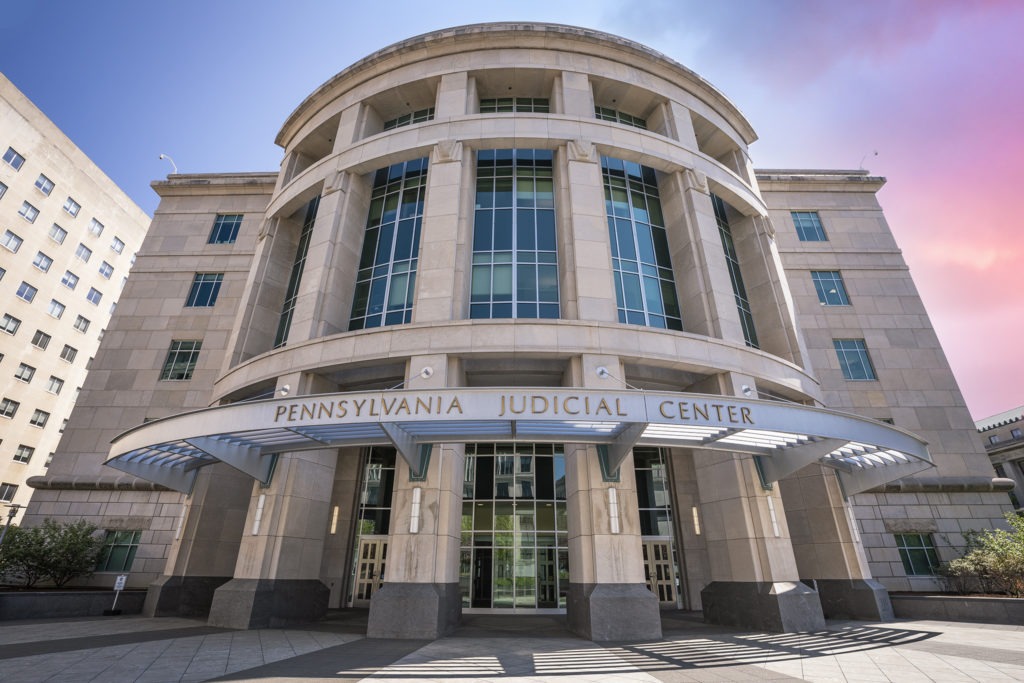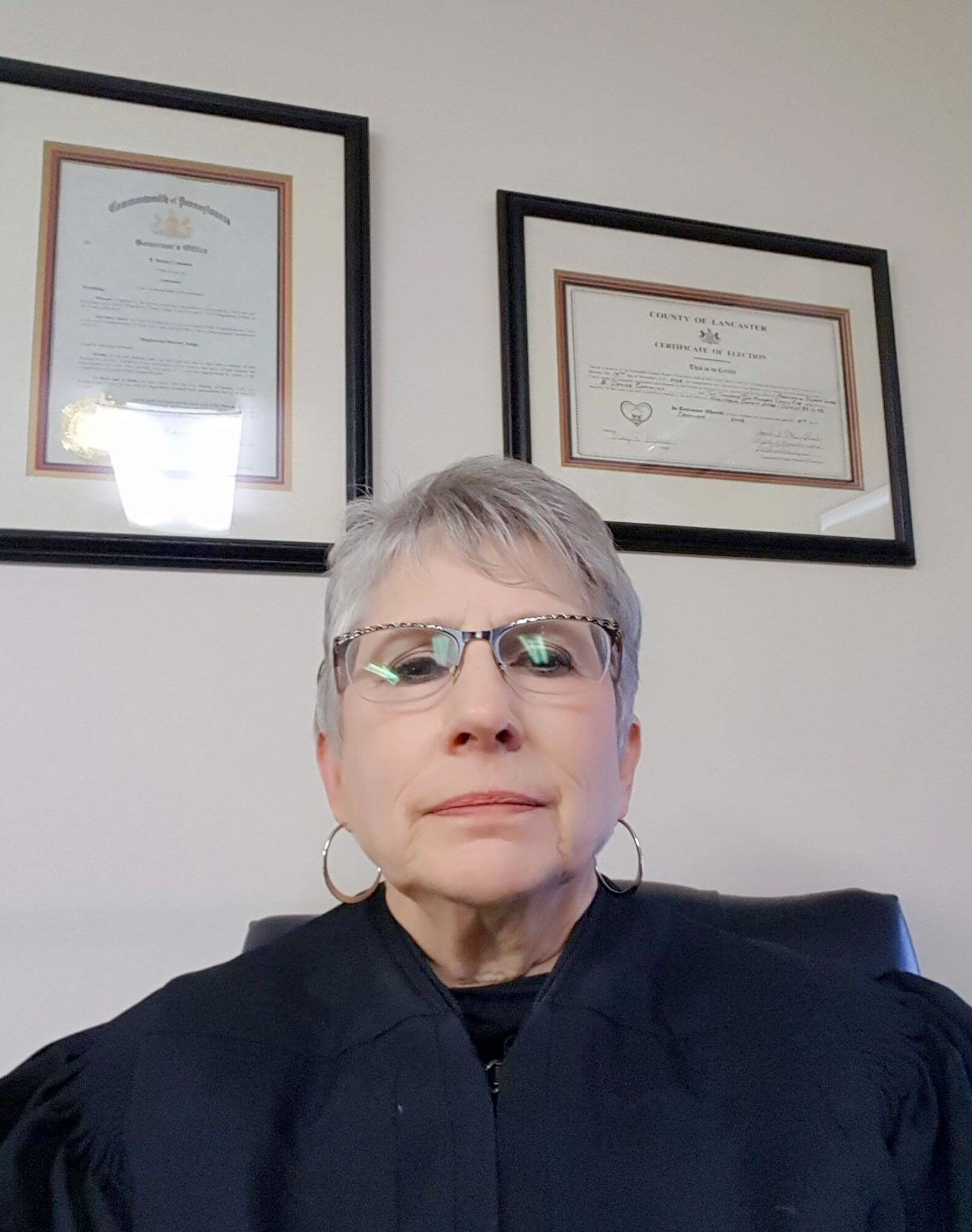About Us
Magisterial District Courts and Municipal Courts serve an important function and save taxpayer money
“By falling within the judicial branch of government, the District Judge is thus charged with the responsibility of being the disinterested arbiter of disputes and is charged further with acting as the bulwark between the police and the rights of citizens.” – Chief Justice Ralph J. Cappy, Supreme Court of Pennsylvania, Comm v. Edmunds, 526 Pa. 374, 586 A.2nd 887 (1991)



501
Magisterial District Judges (MDJs)
Special Court Judges in Pennsylvania
- 501 Magisterial District Judges (MDJs)
- 89 Senior Magisterial District Judges
- 27 Philadelphia Municipal Court Judges (PMCJs)
- 4 Senior Philadelphia Municipal Court Judges
- Every MDJ and Senior MDJ receives 32 hours of Continuing Legal Education Annually
- Every Phila MCJ and Senior MCJ receives 12 hours of Continuing Legal Education Annually
67
Counties
Located Across PA
- Population of 12.8 Million People
- 67 Counties
- 2,561 Municipalities
- 1,546 Townships
- 958 Boroughs
- 56 Cities
2245000
Approximate Annual Case Filings
For PA Magisterial District Judges
- 2,800,000 New Case Filings
- 207,000 Criminal Cases
- 130,000 Civil Cases
- 97,000 Landlord/Tenant Cases
- 1,570,000 Traffic Cases
- 238,000 Non-Traffic Cases
- 7,000 Emergency PFAs
$287
Million
Magisterial Judges in PA collect annually
- $180 Million Disbursed to State
- $44 Million Disbursed to Counties
- $34 Million Disbursed to Local Municipalities
- $4 Million Disbursed to Victims for Restitution
- $870,000 Credit for Community Service
Current Officers
2025-2026 Executive Committee
Our Mission
“Foster, promote and advance, without becoming involved in partisan politics of any kind, the study and application of the laws pertaining to, administered by and affecting Special Court Judges, the proper observance of judicial ethics and moral obligations by and among such officers and members, the dissemination of legal and other information for the better performance of the duties of such offices, and for social purposes provided in the non-profit corporation.”

FIND A JUDGE
Ensuring access to justice is the highest priority of Pennsylvania’s courts.
Each county in Pennsylvania is divided into magisterial districts. These districts may consist of one municipality, or several, depending on population, proximity and caseload. Each district has one judge presiding, except Philadelphia that has several. Please use this locator to find a local judge for your area and learn about him or her. Please contact the court to confirm it is the right venue for your matter to be heard.
“Judges are different from other public officials. We do not respond to or influence public opinion. We do not formulate public policy. We do not drive political agendas, and we do not hand out jobs. We put on black robes, we make very important decisions about peoples’ lives, and we do it one life at a time. That makes our contact with the public very personal. In order to accept and abide by those decisions, they must believe that they were rendered in a fair and just manner by qualified, independent, impartial judges.” – Judge Kate Ford-Elliott, Superior Court of Pennsylvania, Pennsylvania Bar Association Judicial Reform Commission, Nov 1997







